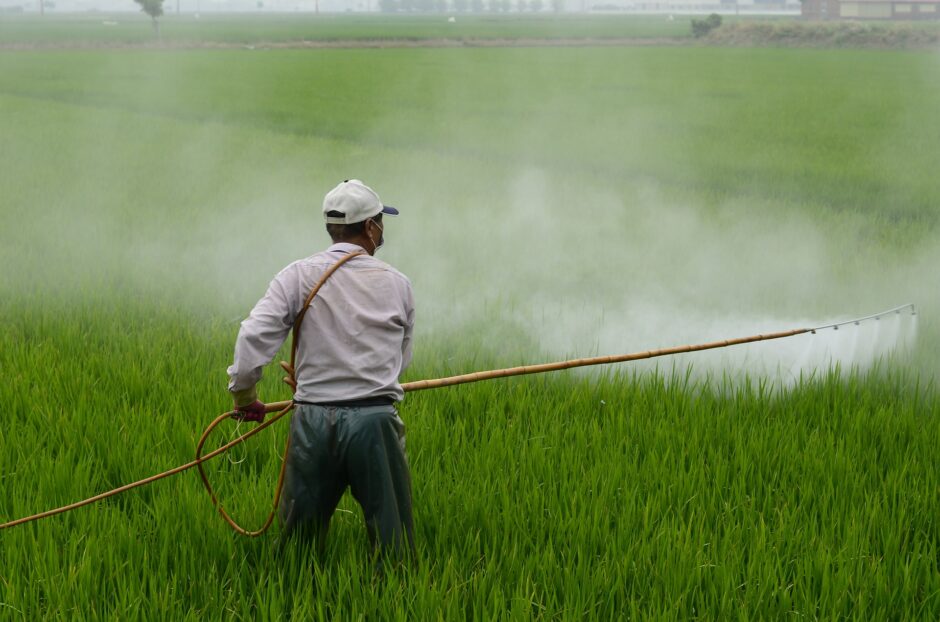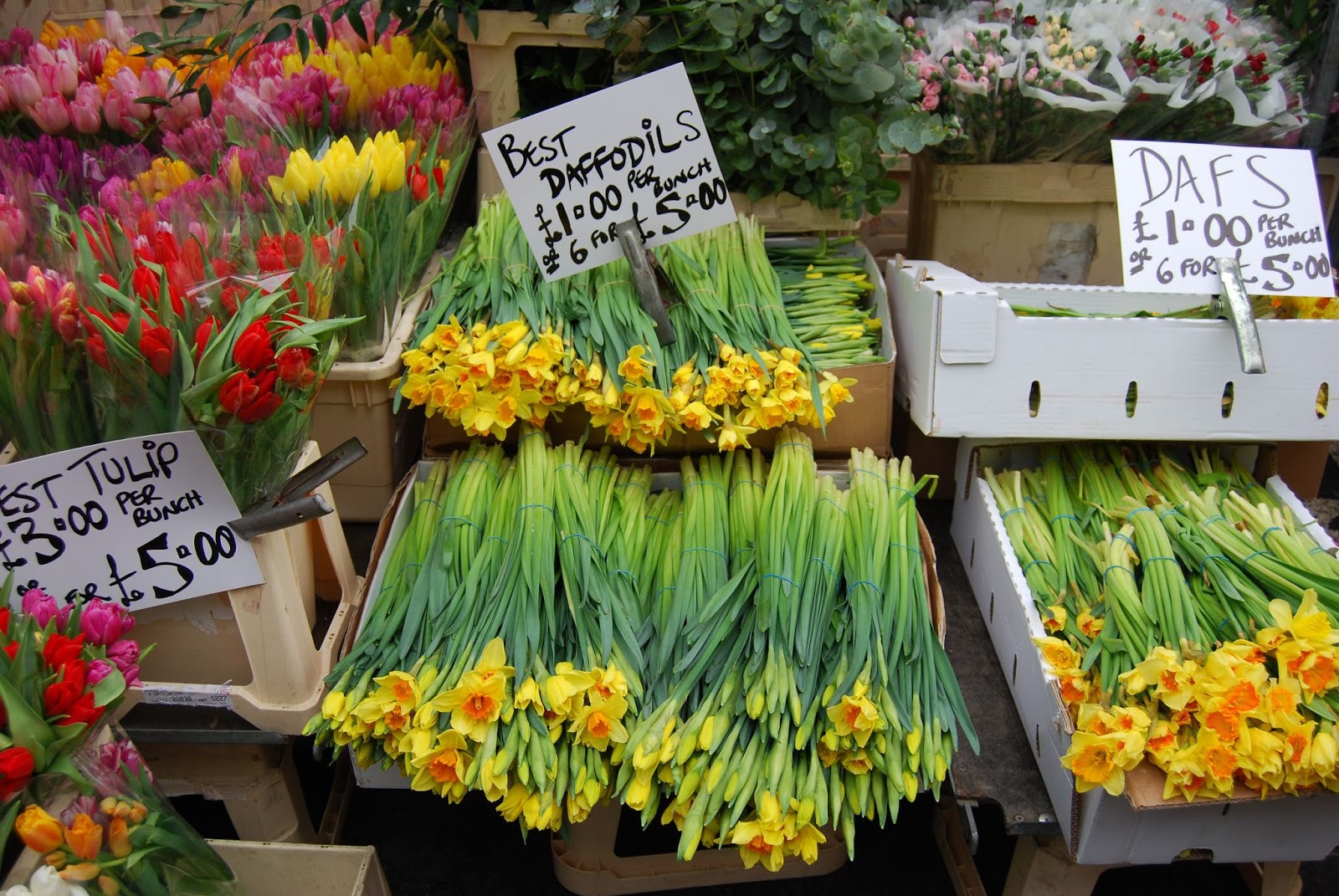“Today, a flower is not produced with sweetness but with tears. Our product is used to express beautiful feelings throughout the world, but we are treated very poorly.”
– Flower Sector Employee, Facatativa, Colombia
Toxic chemicals, sexual harassment and minimum wages are normally not associated with flowers. Yet, all of these factors are part of a reality embedded within the industry many cut flowers come from. Though a bouquet of flowers on the table may seem pretty during these springtimes, consumers should be aware of the complex truth behind the global cut flower industry and mobilize their consumer power for more sustainable and fair trade options.
With today’s celebration of Mother’s Day and graduation parties as well as midsummer just around the corner, many of us like to decorate our homes with bouquets of flowers or give them away to loved ones as a sign of our appreciation. What many people perhaps do not know is that the cut flowers that we buy in stores are often imported from developing countries around the equator, where the climate for growing flowers is better and the workforce is cheaper.
The import of cut flowers is usually framed as a good thing, said to create job opportunities, especially for women. Today, women constitute the majority of the cut flower industry’s employees, largely because of their labour flexibility forming part of a broader trend called the feminization of the labour force. This trend means that women in the Global South are often hired by multinational companies to do low-skilled work since they are more likely than men to accept lower wages as well as part-time and temporary work.
However, women’s labour flexibility stems from a number of complex and intertwined factors, including the increased demand to work in a more neoliberal and market oriented economy pushed by, amongst other, the West’s conditional loans to developing countries. This combined with gender discrimination and disadvantages on the market make women more likely to accept flexible labour in order to attain an income and provide for their families. There are also additional specific gender stereotypes making female workers more wanted in the flower industry, such as the belief that women are more dexterous than men and therefore better suited to pick and pack the flowers.
The job opportunities provided by the cut flower industry are, as mentioned, often framed as beneficial for women, which US President Joe Biden showed when he visited a Colombian flower plantation during his vice-presidency saying:
“Sixty percent of the employees are women, and of these, nearly half are heads of households, families whose lives have changed for the better. (…) The progress is being made, not just in access to US markets, but in the decent good paying jobs”.
But is this the whole truth?
Working conditions
In terms of “decent good paying jobs”, there are in fact several findings suggesting that many cut flower workers are earning minimum wages which do not cover their monthly expenses. In Colombia, reports have found that it is not unusual for female single-headed households, where the woman works full-time on flower farms, to still live below the poverty line. Furthermore, many women in the Colombian cut flower industry are only granted temporary job contracts even after many years of employment, causing insecure job situations.
Low wages and temporary work contracts are, however, not the only issues regarding jobs in the cut flower industry. At Colombian flower farms, working six days per week is normal practice and right before special celebrations such as Valentine’s Day and Mother’s Day, a normal workweek can exceed 100 hours or 16 hours per day, causing health issues as well as problems with childcare. In addition, work related injuries such as carpal tunnel syndrome, wrist issues and shoulder problems are all common for workers at the flower farms due to long hours, high productivity and monotonic work.
Furthermore, it should be emphasized that while the cut flower industry does create some job opportunities, it also, in fact, eradicates other work that previously existed. In Ethiopia for instance, the state has expropriated land from small scale farmers for the cut flower companies giving the farmers little or no compensation. Some of the affected farmers who tried to attain jobs for the flower companies, could not get one because the companies would rather hire migrant labour.
Sexual Harassment
“My supervisor told me that if I wanted to keep working at my job, I had to go on a date with him.”
Another pressing issue for the female workers at the flower farms is the sexual harassment many of them face. Although the majority of workers are women, most of them have male supervisors of whom many take advantage of their higher positions. Testimonies from female workers include stories of being touched by male supervisors against their will, facing sexual verbal abuse, and being demanded to do sexual favours in order to get days off or lessen their workloads. Studies from the Kenyan cut flower industry also demonstrate how female workers not seldom exchange sex for employment, doing sex work part-time because of the low wages and full-time when their temporary contracts run out.
Workers within the flower industry therefore often have mixed feelings about their jobs. While the job opportunity itself might be appreciated, especially for young women to gain some economic independence, there are also multiple complaints about the low wages and bad working conditions they face, which consumer power in the Global North could help improve by demanding more fair trade options from policymakers.
Environmental impact
Besides problematic conditions for the workers, the global cut flower industry also has a big environmental impact. Beginning with the transportation, most cut flowers are conveyed in special chilled trucks from the flower farms to the airport, then put on planes, and once landed again freighted in chilled trucks to their final destination. Besides the enormous CO2 footprint that planes are emitting, these refrigerated trucks also use approximately 25 per cent more fuel than ordinary trucks.

In terms of the production of the flowers, extensive use of toxic chemicals in fertilizers and pesticides are common since the flower production does not operate under the same regulations as for instance the food industry. Studies show that as much as 80 to 90 per cent of the applied pesticides on flowers normally disperse, contaminating groundwater, sterilizing land and polluting the air. Besides degrading the environment, these chemicals are also extremely dangerous for people’s health, not least the flower workers’. Studies have found that the chemicals used in flower production increase the risk for a range of diseases and health issues, from skin problems and respiratory issues, to cancer and birth defects.
Finally, flower farms also demand great volumes of water, which have caused decreasing water levels in some parts of Colombia as well as in Lake Naivasha in Kenya, leaving fishermen with reduced fish stocks. The lack of water resources has led to conflicts between big flower companies and local communities, most notably in Tabacundo in Ecuador in 2006, where despite the Ecuadorian smallholders gaining control over water resources, most water is still allocated to the large cut flower companies.
What to do?
Taking all the facts discussed above into consideration, it becomes clear that the beautiful flowers we put on our tables also have an ugly side. One important question, therefore, becomes what can be done in order to make a change.
Politics are often talked about as something that happens on a high level, something only a few people do, when in fact there is politics in everyone’s lives and in every decision we make. While the ultimate responsibility for changing the cut flower industry lies with people in positions of power such as politicians and big flower companies, consumer power has proven to be powerful, helping to make fairtrade bananas the standard in our grocery stores and ecological cotton more commonly used in our clothes.
As such, there is an opportunity for us to make a change on an individual level by demanding more fairtrade and sustainably grown cut flowers. Certifications such as fair trade are not completely unproblematic since there have been cases where the standards promised are not fulfilled, but at least these certifications are normally a good step on the way. For cut flowers one can look for the Florverde certification, aiming to guarantee workers rights and improve sustainability. As with all supply chains – in the end, the power lies with the consumers.

Vilma Ellemark
Vilma Ellemark is a political science student, co-host of the feminist show F-EMME on K103 Gothenburg Studentradio and writer for Utblick since spring 2021




